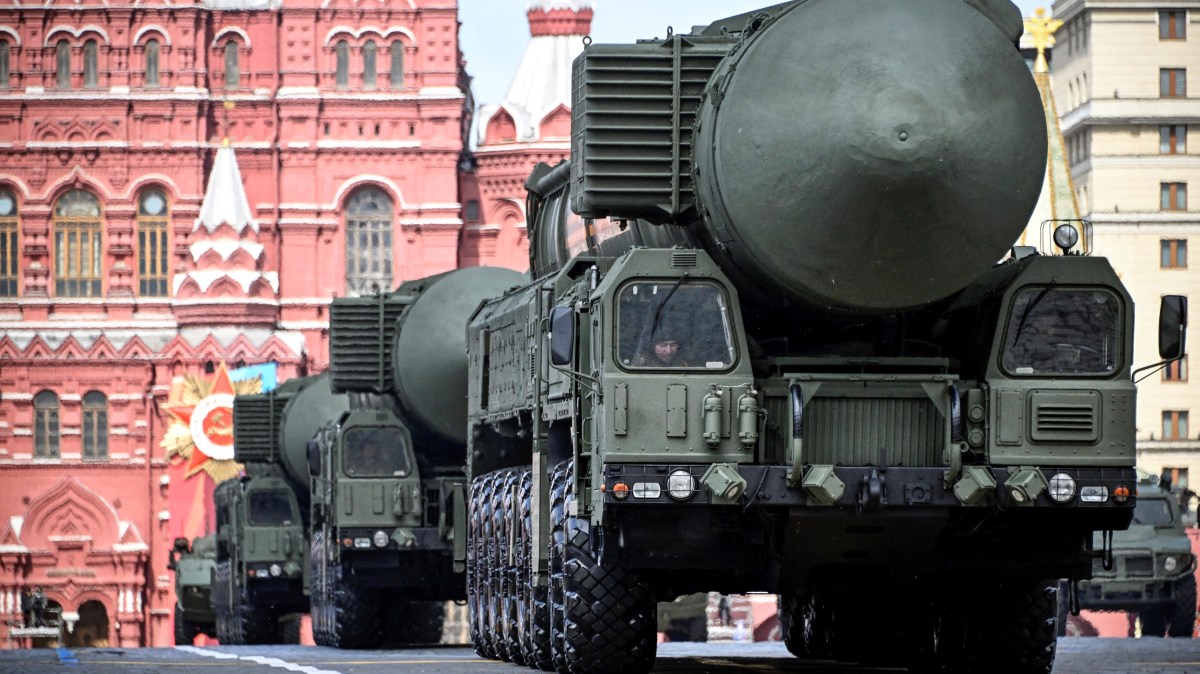By Peter Tchir of Academy Securities
An Amazing Country (With Some Questions)
A 10-day road trip visiting clients in San Diego, Austin, San Antonio, Houston, Baltimore, (and of course New York and Connecticut), as well as numerous Zoom calls, was a great reminder that there are more similarities than differences across this amazing country! There was some palpable concern amongst some, and something resembling giddiness amongst others. There were some deviations depending on the location and the industry – but as a whole, what stood out, was that people were trying to figure out what is next and what to do about it. Those whose party or candidate didn’t win even expressed some optimism about how things could go. Those who did win also questioned some of the early moves. Very healthy dialogues and introspection. Maybe, just maybe, this is driven by the fact that media rhetoric has toned down significantly since the election? It is almost amazing how quickly things have ratcheted down since the election across much of mainstream media. I do think, and I’m biased, that financial media generally does a better job at this because their main goal is to help managers and investors understand the broader landscape.
Admittedly, many of our conversations were focused on Geopolitical Risk (with members of Academy’s Geopolitical Intelligence Group), but even on that front there is reason for some optimism.
If you missed our recent Podcast, this is a good time to listen, as we tackle a lot of issues in the Middle East and how we see a potential end to the conflict in Ukraine evolving.
This report should, hopefully, act as a bookend to recent reports on Learning to Speak Trump and 3D Chess or 52-Card Pickup?
The only issue is that since I spent so much time away from my data and charts (I do miss them), this report will be high-level and more of a guide for Thanksgiving conversations than markets. We will follow up early this week on that front, once I’ve managed to get fully caught up on these choppy markets.
So today, we will quickly address some of the questions that came up regularly.
Hitting the Ground Running
While we discussed appointments in some detail last week, there is one clear theme so far:
- In 2016 the President-Elect was slow to pick his posts and left many jobs vacant – which slowed things down. He is obviously trying to change that this time.
- Many people who were left in place during Trump’s first term did not fully support his agenda and it is believed (probably accurately) that they slow-played things and tried to subvert his agenda from the inside – something that he is trying to change this time.
Whether you agree with some, all, or very few of his picks, this is clearly what is motivating him.
Tariffs
Tariffs were a big part of any discussion. This could play out in many ways, but our base case remains the same:
- A negotiating ploy to bring countries (namely China) to the table. Many seem very concerned by his statements (which, if taken on face value, are concerning), but if Trump states that this is merely to get China to the table, they lose their power.
- He did put tariffs in place, so his threat carries weight.
- The last time he imposed tariffs, there were weeks, if not months, of trade negotiations, so fully I expect that to occur again.
- China is weak right now economically, and will likely have to bear some of the cost through reduced profits (or more subsidies) and a weaker currency. I expect a stronger dollar to offset much of any impact from tariffs that do get implemented.
I’m not overly worried about tariffs. My hope is that well-targeted tariffs, along with well-targeted subsidies for U.S. corporations, could really jump start “reshoring.”
The Chips Act, and how many strings were attached to it, and why so little money had actually been sent to corporations ahead of the election, came up repeatedly in meetings. Primarily, sadly, this is an example of good/important policy (building foundries) being diminished by adding too many bells and whistles, thereby diluting the initiative. It does seem like there is an increased effort to get the money out the door as this administration winds down.
Why Not a Better Discussion on Mexico?
Right now, Mexico seems likely to be hit with tariffs and immigration related issues. Most, including me, seem to be trying to figure out why we are not having more holistic conversations with Mexico.
If we can get things “right” with Mexico – it could be a boon for both countries.
- We need to stop the flow of fentanyl (and other drugs) and the potential risk of terrorists coming through. Much of which is being aided (if not directed) by the cartels.
- Many Mexicans need better jobs and a way to thrive in Mexico outside of the cartels.
- U.S. companies need to be able to set up businesses in Mexico, but are finding many constraints – including, though not limited to, the reach of the cartels.
I think many would like to see a much bigger dialogue about how the U.S. and Mexico could tackle problems together – many of which stem from the influence of the cartels. So far that doesn’t seem to be on the agenda, which is frustrating to many, as it seems like an obvious avenue to help both countries with their current (and future) concerns.
Immigration
This might be the “trickiest” Trump topic right now.
My view, which is simplistic, and with less basis than my view on tariffs (where we have a lot of color from several of our GIG members), is still my best estimate at the moment.
- Expect “high profile wins” that have largely universal support. In this category I would highlight criminals, especially where criminal activity has allegedly taken over small areas. I do think that places like the Roosevelt Hotel in New York, meant to be temporary relocation centers, have morphed into something, that while well-intentioned, isn’t working. That could be another “win” (and it seems like Mayor Adams is moving in that direction as well).
- Don’t expect a full-blown effort to remove every undocumented (often illegal) worker. As you move to a “local” level, many companies depend on these people and are likely to use their influence to limit what happens to these workers, who as a group, have been here long before the term “border crisis” was a regular talking point. While there are various humanitarian and even broader economic reasons not to do this, it might just come down to being too expensive.
- While there are a variety of opinions on the subject, many of our GIG members think there is a high likelihood that Trump will mobilize the national guard on the border. It does fit with the theme of “easy” wins. It will not be a particularly dangerous assignment (there should be no U.S. reserve casualties) and it shows that “he is doing something” and it will create some powerful photo ops. Basically, it just enforces the rules on the books.
If there is one area where I’m really concerned that I’m downplaying how aggressive the administration will be (which would impact our nation in many ways), this is it.
Wars
A push to end the war in Ukraine.
- Trump will come up with a deal that he thinks makes sense. Then with a combination of carrots and sticks, for both sides, with Russia’s frozen dollar reserves as a big bargaining tool, he will make something happen.
-
- We don’t talk much about this in the U.S., but there is increasing concern that Ukrainians who have left almost 3 years ago are already questioning the idea of returning as they have made new lives for themselves. That risk only increases the longer the war goes on.
- Georgia – no response. Crimea – blink, but just barely blinked. Donbas – minor pushback. Yes, it would be awful to give Putin his “win”, but effectively we have been doing that with far less pushback for over a decade now.
Permission to destabilize Iran.
- Israel has been making progress in its efforts to reduce the fighting ability of Iran’s proxies. It has demonstrated that Iran itself is vulnerable to attack and possibility limited in its ability to respond.
- Much of the Middle East views Iran as the problem, which may also encourage efforts to continue to push back militarily on Iran.
- It is probably too much to wish for regime change in Iran, but maybe this is the opportunity to press and try?
Africa
Our stance on Africa is unclear. Actually, that is too generous. Russia and China are gaining influence in the region. We paid little attention to it (we didn’t even have ambassadors in some prominent nations). We are paying the price. Deaths are occurring in the region in numbers that dwarf anything going on anywhere else in the world, but this isn’t making it to our headlines.
Not sure what to do here, but it is time that we all pay more attention.
NIMBY and D.O.G.E.
As a whole I think people are curious to see how “Not In My Backyard” plays out. We have a lot of rules and regulations that might get re-evaluated.
- Since the collapse of the Soviet Union, we have had the luxury of being the sole superpower. We implemented a lot of rules and regulations that made sense in that context.
- As China’s rise, both militarily and especially economically, alters the global landscape, it may be time to revisit some of those issues.
- Chips and processed materials (rare earths and critical minerals) all need to be part of what we re-evaluate to make sure we are not fighting with one arm tied behind our backs.
Everyone is curious to see how this Department of Government Efficiency plays out! One thing being floated is offering large severances, which I think (and this ties back to my use of the QUIT rate last week) leads to a very negative self-selection process, and isn’t particularly efficient.
Crypto
Everyone who loved crypto and helped pump it higher continues to love it and pump it higher.
No one who didn’t love crypto has changed their view and they think that it is something the U.S. government shouldn’t be buying (it doesn’t mean they haven’t bought crypto to ride this move, but their view on the use of crypto hasn’t changed).
Bottom Line
No shortage of things to talk about as you prepare for Thanksgiving, but I have the overwhelming sense that this is being done in a constructive way.
And, so we can end on the lightest note possible (I think it is a light note), you can always bet the over/under on how long Trump and Musk can remain besties!
Have a great holiday week and nothing on my market view has really changed (be underweight risk, overweight duration, but only modestly) and try to trade positions around until a real clear trend emerges.














